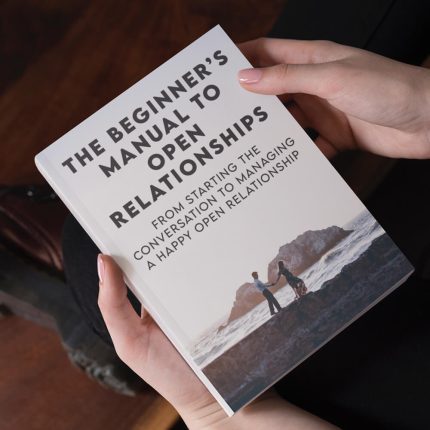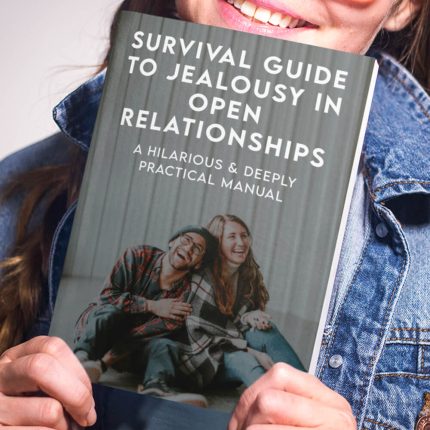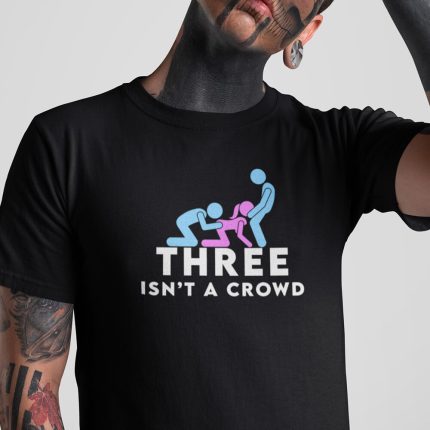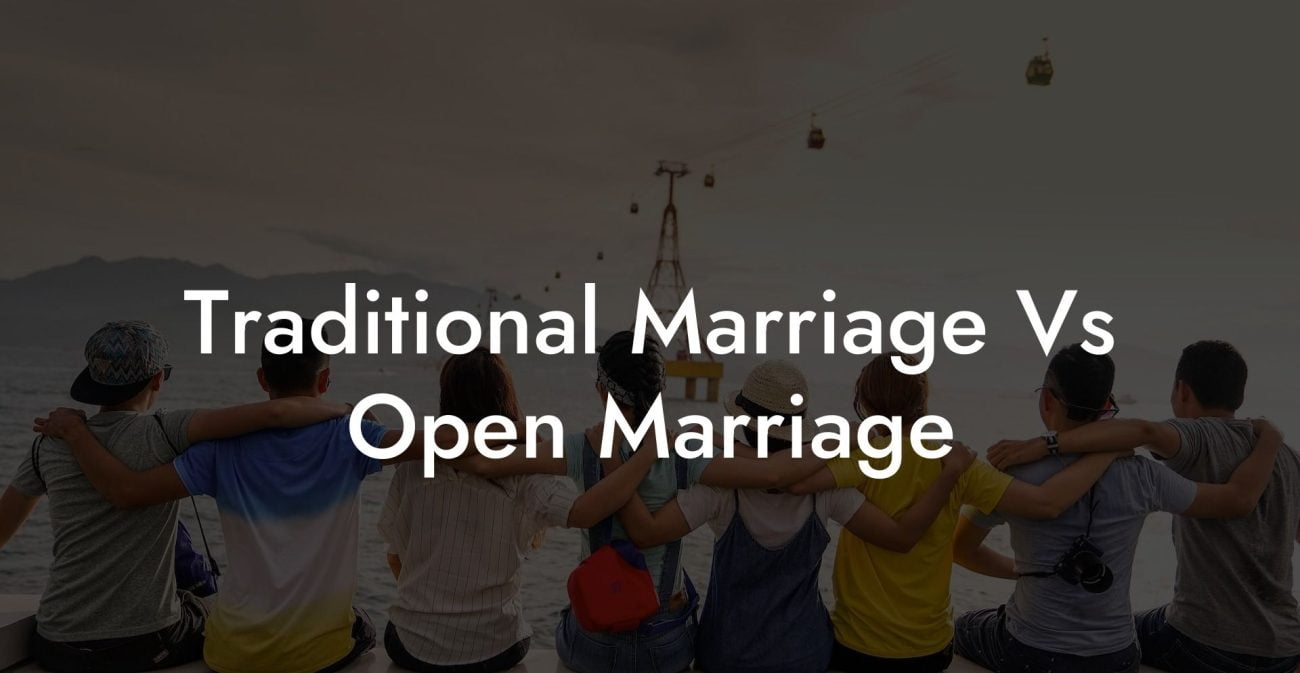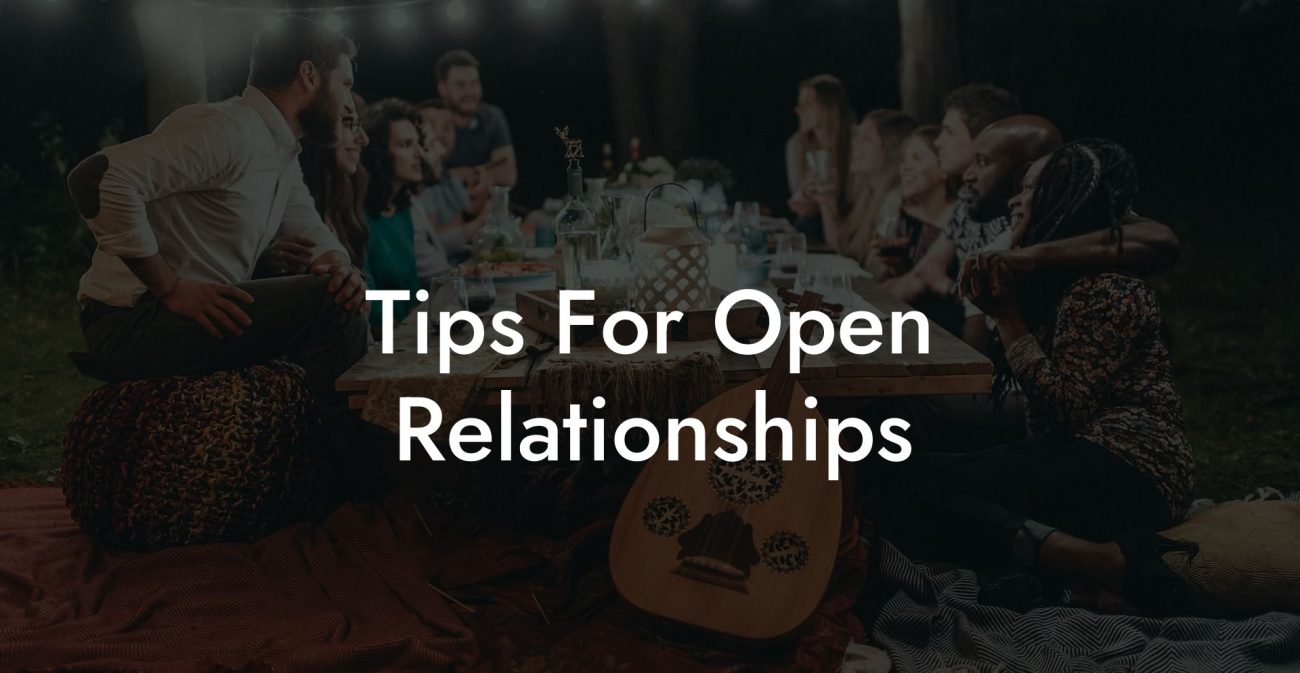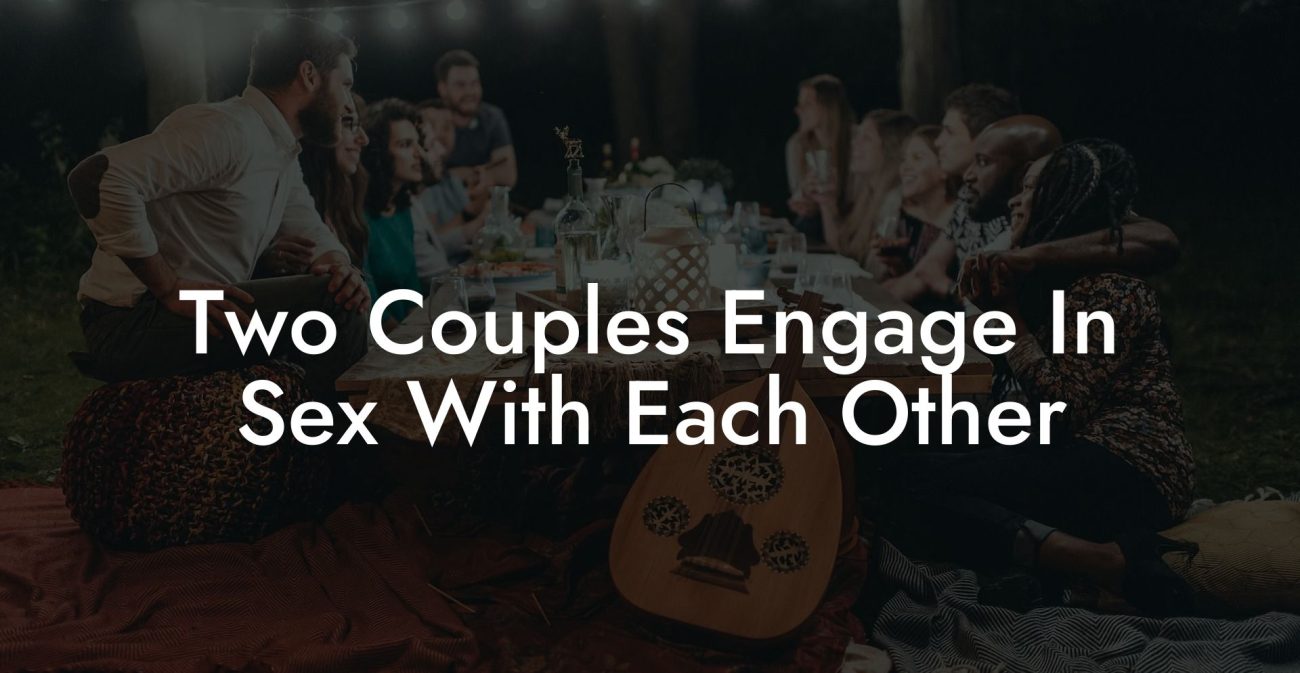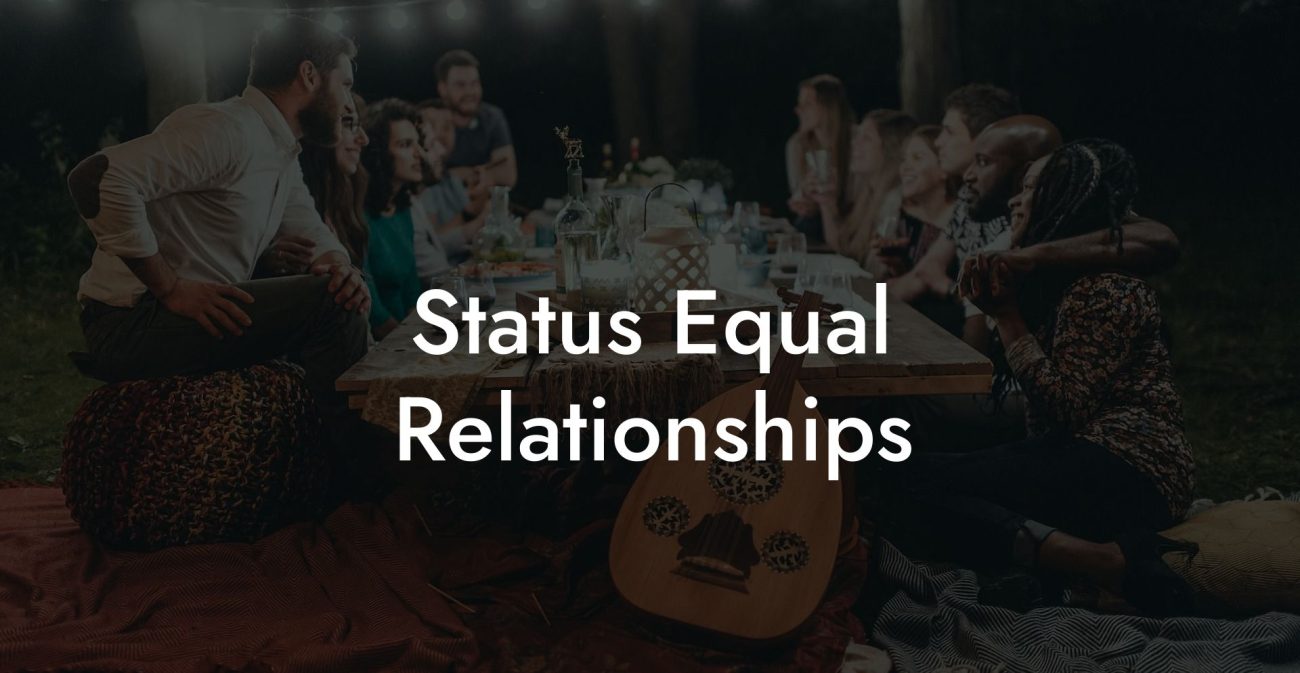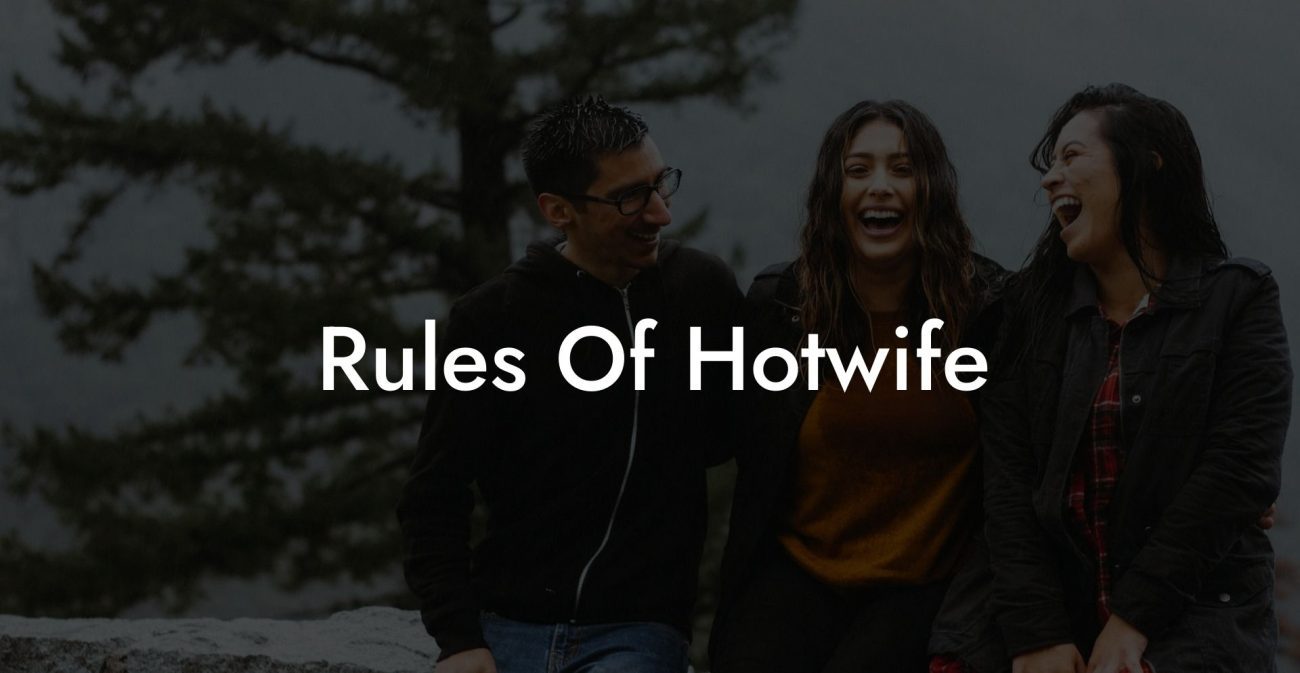Guide to Polygamy Legal

As traditional notions of marriage evolve and alternative relationship structures gain visibility, understanding the legal aspects of polygamy has never been more important. In this guide, we will discuss what polygamy is, examine its historical roots and cultural context, explore landmark legal cases, and provide practical strategies for navigating legal challenges. By integrating expert perspectives, real-life examples, and structured data for clarity, our goal is to empower you with a balanced and informed view of polygamy legal.
Have you ever wondered if monogamy is just a stupid little experiment? Open relationships, polyamory, relationship anarchy...find out which relationship dynamic suits you best with our one minute relationship test. See if you are just conforming to "societal norms". Reveal your truth >>
Quick Links to Useful Sections
- Understanding the Legal Framework of Polygamy
- Defining Polygamy and Related Terminology
- Polygamy vs. Polyamory: Legal Distinctions
- Historical Perspectives on Polygamy Legal Issues
- Early Legal Recognition and Religious Foundations
- Landmark Court Cases and Legislative Reforms
- The Modern Legal Landscape for Polygamy
- Current Federal and State Laws
- International Perspectives on Polygamy Legal
- Key Legal Issues and Controversies
- Marriage, Inheritance, and Spousal Rights
- Criminalization and Prosecution of Polygamy
- Ethical Debates and Gender Inequality
- Advocacy and Policy Reform: The Future of Legal Polygamy
- Calls for Legal Reform
- The Role of Advocacy Groups and Legal Scholars
- Practical Strategies for Navigating Polygamy Legal Challenges
- Seeking Legal Counsel and Expert Advice
- Documenting Relationship Agreements
- Engaging with Community Resources and Support Networks
- Staying Informed and Adapting to Changes
- Expert Insights: Perspectives on Polygamy Legal
- Perspectives from Legal Scholars
- Insights from Family Law Attorneys
- Advocacy and Policy Recommendations
- FAQ: Your Polygamy Legal Questions Answered
Understanding the Legal Framework of Polygamy
Defining Polygamy and Related Terminology
Polygamy is the practice of engaging in multiple marital or committed relationships simultaneously. Traditionally, polygamy is divided into two primary forms: polygyny, where one man is married to multiple women, and polyandry, where one woman is married to multiple men. Although often conflated with polyamory, which focuses on multiple consensual romantic or sexual relationships without formal marriage, polygamy specifically involves legal, cultural, or religious commitments.
Key legal and semantic terms related to this subject include:
- Polygamy Law: Legislation and legal interpretations governing the practice of multiple marriages.
- Family Law: Legal matters involving marriage, divorce, inheritance, child custody, and spousal rights in the context of polygamous unions.
- Legal Recognition: The extent to which polygamous relationships are acknowledged and regulated by law.
- Alternative Family Structures: Diverse relationship models that challenge the monogamous norm, including polygamy and polyamory.
Polygamy vs. Polyamory: Legal Distinctions
While both polygamy and polyamory involve relationships with multiple partners, their legal implications differ significantly. Polygamy usually implies a formal marital commitment recognized (or unrecognized) by the state, whereas polyamory typically does not involve legal marriage. This guide focuses on polygamy legal, which addresses issues such as marriage recognition, spousal rights, and the legal complexities of maintaining multiple legally bound relationships.
Historical Perspectives on Polygamy Legal Issues
Early Legal Recognition and Religious Foundations
The legal history of polygamy is deeply intertwined with cultural and religious practices. In the mid-19th century, many early settlers in regions such as Utah embraced polygamy as a religious and social institution. Leaders like Brigham Young oversaw plural marriages as a means to build community, consolidate resources, and fulfill religious mandates. At that time, polygamy was legally recognized under certain circumstances and was considered integral to the functioning of the community.
However, as the United States expanded and federal laws evolved, conflicts emerged between religious practices and the legal framework. The increasing pressure from federal authorities eventually led to the prohibition of polygamous marriages in 1862 with the Morrill Anti-Bigamy Act, and later reinforced by the Edmunds Act and the Edmunds-Tucker Act. These legislative measures set the stage for decades of legal battles and societal debates over the legitimacy of polygamous unions.
Landmark Court Cases and Legislative Reforms
Throughout the 19th and 20th centuries, several landmark court cases challenged the legal status of polygamy. These cases often centered on issues of individual rights versus state interests and the boundaries of religious freedom. Notable cases and legislative reforms have shaped the current legal landscape:
- The Morrill Anti-Bigamy Act (1862): This federal law prohibited plural marriages and marked the beginning of legal opposition to polygamy.
- The Edmunds Act (1882): Strengthened anti-polygamy measures, making polygamists ineligible for public office and restricting their right to vote.
- The Edmunds-Tucker Act (1887): Further targeted the practice by disincorporating the Church of Jesus Christ of Latter-day Saints (LDS Church) and seizing church assets, significantly impacting the legal recognition of plural marriages.
- Modern Legal Challenges: Ongoing legal debates continue to address the rights of individuals in polygamous relationships, particularly in contexts where cultural practices persist despite legal prohibitions.
The Modern Legal Landscape for Polygamy
Current Federal and State Laws
Today, polygamy is illegal under federal law in the United States, and all states, including those with significant historical ties to plural marriage, enforce monogamous marriage as the legal standard. Despite this, the practice persists on the fringes—often within fundamentalist groups who view plural marriage as a religious right.
EXPLORE OUR ETHICAL NON-MONOGAMY & OPEN RELATIONSHIP SHOP
👨💻👩💻 Digital Store (Instant Download)
🍆💦 Clothing Store (Worldwide Delivery Available)
Sharing Is Caring Unisex T-Shirt (Black)
$29.99It's Not Cheating If He Watches T-Shirt (Black)
$29.99Real Men Share Pop Art T-Shirt (White)
$29.99Three Isn't a Crowd Unisex T-Shirt (Black)
$29.99Fuck Each Other Not The Planet Unisex T-Shirt (White)
$29.99Sharing Is Caring Daddy Cap (Black)
$39.99I Love Watching Pop Art T-Shirt (Black)
$29.99Real Men Share Pop Art T-Shirt (Black)
$29.99Three Isn't a Crowd Unisex T-Shirt (White)
$29.99Multiple Lovers - Sharing Is Caring Unisex T-Shirt (Black)
$29.99I Love Watching Pop Art T-Shirt (White)
$29.99Fuck Each Other Not The Planet Unisex T-Shirt (Black)
$29.99Legal enforcement typically focuses on cases involving abuse, exploitation, or other criminal behavior rather than consensual arrangements. However, individuals in polygamous relationships frequently encounter legal challenges related to:
- Marriage Recognition: Since the law does not recognize multiple simultaneous marriages, issues such as inheritance, property rights, and spousal benefits become complex.
- Family Law: Custody, divorce, and child support matters are complicated by the absence of legal frameworks for plural unions.
- Criminal Prosecution: While consensual polygamy is often not aggressively prosecuted, high-profile cases or instances of abuse can lead to legal action.
International Perspectives on Polygamy Legal
The legal status of polygamy varies greatly around the world. In some countries, such as parts of Africa, the Middle East, and South Asia, polygamous marriages are legally recognized and regulated under religious or customary law. These legal systems often provide mechanisms for the protection of rights within plural marriages, though they may also perpetuate gender inequalities.
Comparing international legal frameworks can offer valuable insights into how different societies balance tradition, religion, and modern human rights principles. For instance, in certain Islamic countries, polygamy is legally permitted but is subject to strict conditions intended to protect the rights of all parties.
Key Legal Issues and Controversies
Marriage, Inheritance, and Spousal Rights
One of the most significant legal issues in polygamy is the question of marriage recognition. In jurisdictions where only monogamous marriages are legally acknowledged, individuals in polygamous unions face difficulties regarding:
- Inheritance Rights: Determining how assets and property are distributed among multiple spouses can be legally challenging.
- Spousal Benefits: Access to benefits such as healthcare, tax deductions, and social security is typically structured around monogamous relationships.
- Legal Custody and Parental Rights: Establishing parental rights and custody arrangements becomes complex when children are born into a plural marriage without legal recognition.
Criminalization and Prosecution of Polygamy
Although federal and state laws prohibit polygamy, enforcement is often selective. Authorities may focus on cases where polygamous practices intersect with abuse, exploitation, or fraud. As a result, many individuals in consensual polygamous relationships are able to live relatively openly without constant legal interference, though the threat of prosecution can still create an atmosphere of uncertainty.
The debate over criminalizing polygamy often centers on the balance between protecting vulnerable individuals and respecting religious freedom and personal autonomy.
Ethical Debates and Gender Inequality
Ethical controversies surrounding polygamy frequently focus on issues of gender equality. Critics argue that traditional forms of polygamy have historically reinforced patriarchal power structures, often marginalizing women. Proponents of ethical polygamy, however, contend that when practiced with informed consent, equality, and transparency, plural marriage can provide a viable alternative to conventional monogamous models.
These debates continue to influence both public opinion and legal discourse, as advocates work to ensure that any legal reforms prioritize the rights and dignity of all participants.
Advocacy and Policy Reform: The Future of Legal Polygamy
Calls for Legal Reform
In recent years, there have been growing calls for legal reform to better accommodate diverse family structures. Advocates argue that the current legal framework, which exclusively recognizes monogamous marriages, fails to reflect the lived realities of many individuals who choose alternative relationship models.
Proposed reforms include:
- Legal Recognition of Alternative Unions: Exploring options for legal recognition of non-traditional family structures without necessarily endorsing plural marriage in its historical form.
- Protection of Individual Rights: Ensuring that individuals in polygamous relationships have access to legal protections related to inheritance, custody, and spousal benefits.
- Anti-Discrimination Measures: Implementing policies that prevent discrimination against individuals in consensual, ethical non-monogamous relationships.
The Role of Advocacy Groups and Legal Scholars
Advocacy groups and legal scholars play a critical role in shaping the conversation around polygamy legal. Through research, public education, and policy advocacy, these groups aim to influence legislative reform that reflects contemporary values of equality, autonomy, and diversity. Community forums, academic conferences, and media outreach all contribute to a more informed and balanced dialogue about the future of polygamy law.
By engaging with these initiatives, individuals can help drive progress toward a legal system that is more inclusive of alternative family structures.
Practical Strategies for Navigating Polygamy Legal Challenges
Seeking Legal Counsel and Expert Advice
If you are involved in or considering a polygamous relationship, it is crucial to seek legal counsel from professionals experienced in family law and alternative relationship structures. Legal experts can help you understand your rights, draft relationship agreements, and navigate potential legal pitfalls.
Regular consultations with legal professionals can provide peace of mind and ensure that your arrangements are as secure as possible within the confines of current laws.
Documenting Relationship Agreements
While polygamous marriages are not legally recognized in many jurisdictions, having well-documented relationship agreements can help protect your interests. These documents can outline the responsibilities, financial arrangements, and expectations of all parties involved. Although not legally binding in the same way as monogamous marriage contracts, they serve as an important reference for conflict resolution and personal accountability.
Engaging with Community Resources and Support Networks
Connecting with advocacy groups, support networks, and online communities can provide valuable guidance and emotional support. These resources often offer workshops, counseling services, and forums where individuals share their experiences and strategies for coping with legal challenges. Engaging with like-minded communities can also help reduce the stigma associated with polygamy and foster a sense of empowerment.
Staying Informed and Adapting to Changes
The legal landscape surrounding polygamy is constantly evolving. Stay informed about new legislation, court rulings, and advocacy efforts by following reputable legal journals, news outlets, and academic publications. Being proactive and adaptable will help you navigate any changes in the law and ensure that your rights are protected.
Expert Insights: Perspectives on Polygamy Legal
Perspectives from Legal Scholars
Leading legal scholars emphasize the importance of a nuanced approach to polygamy legal issues. They argue that while the current legal framework favors monogamy, there is a growing recognition of the need to accommodate diverse family structures in a manner that protects individual rights. Scholars advocate for reforms that balance public policy interests with the freedoms of personal relationships.
“The challenge is to create a legal framework that is both protective and inclusive,” notes one prominent legal expert. “We must recognize that family structures are evolving, and our laws need to evolve accordingly.”
Insights from Family Law Attorneys
Family law attorneys working with clients in non-traditional relationships stress that documentation and clear communication are key to minimizing legal risks. They recommend that individuals in polygamous relationships proactively establish agreements and seek periodic legal review. These practices not only help manage legal uncertainty but also contribute to stronger, more resilient relationship dynamics.
Advocacy and Policy Recommendations
Advocacy groups continue to push for legal reforms that recognize alternative relationship models. Their recommendations include creating legal provisions that, while not endorsing plural marriage outright, provide protections for individuals who choose such lifestyles. These efforts are aimed at reducing discrimination and ensuring that all families have access to the same legal rights and social services.
FAQ: Your Polygamy Legal Questions Answered
1. Is polygamy legal in the United States?
No, polygamy is illegal under federal law and in all 50 states. The legal framework recognizes only monogamous marriages, and engaging in multiple marriages can lead to criminal prosecution.
2. What are the main legal challenges faced by individuals in polygamous relationships?
Key legal challenges include issues related to marriage recognition, inheritance rights, custody arrangements, and access to spousal benefits. Additionally, individuals may face legal uncertainties and discrimination due to the lack of formal recognition of plural unions.
3. How do landmark laws like the Morrill Anti-Bigamy Act affect polygamy legal?
The Morrill Anti-Bigamy Act (1862), along with subsequent laws like the Edmunds Act and the Edmunds-Tucker Act, laid the foundation for the criminalization of polygamy in the United States. These laws were designed to enforce monogamy and have had lasting impacts on how plural marriages are viewed and prosecuted.
4. Can individuals in polygamous relationships protect their legal rights?
While polygamous marriages are not legally recognized, individuals can take steps to protect their rights by documenting relationship agreements, seeking legal counsel, and engaging with advocacy groups. These measures can help manage legal risks and provide a basis for resolving disputes.
5. Are there any movements for legal reform regarding polygamy?
Yes, there are ongoing advocacy efforts aimed at reforming family law to better accommodate alternative relationship models. These movements seek to provide legal recognition and protection for diverse family structures while balancing public policy interests.
6. How do international legal perspectives on polygamy differ from those in the United States?
In many countries, particularly in parts of Africa, the Middle East, and South Asia, polygamous marriages are legally recognized and regulated under religious or customary law. In contrast, the United States strictly enforces monogamous marriage, making its legal framework significantly different from that of countries where polygamy is a traditional practice.
Resources and Community Support: Your Next Steps in Polygamy Legal
- "The Ethical Slut" by Dossie Easton & Janet Hardy – A foundational resource exploring ethical non-monogamy and alternative relationship models.
- "More Than Two" by Franklin Veaux & Eve Rickert – A comprehensive guide on managing multiple relationships with insights applicable to legal challenges in polygamy.
- Legal Journals and Publications: Stay informed by following reputable legal publications and academic research on family law and alternative relationship structures.
- Podcasts: Engage with shows such as "Multiamory" and "Polyamory Weekly" for discussions that include legal aspects of non-traditional relationships.
- Online Forums and Community Groups: Connect with communities on platforms like r/polyamory or specialized Facebook groups to share experiences and gather legal insights.
- Legal Consultation: Consult with family law attorneys and legal professionals who specialize in non-monogamous relationship issues to better understand your rights and options.
By exploring these resources and connecting with supportive communities, you can deepen your understanding of the legal aspects of polygamy and develop practical strategies for navigating its challenges. Embrace your journey with openness, continuous learning, and a commitment to ethical practices, and discover how legal reform and community advocacy can help shape a more inclusive future for alternative family structures.
EXPLORE OUR ETHICAL NON-MONOGAMY & OPEN RELATIONSHIP SHOP
👨💻👩💻 Digital Store (Instant Download)
🍆💦 Clothing Store (Worldwide Delivery Available)
Sharing Is Caring Daddy Cap (Black)
$39.99Multiple Lovers - Sharing Is Caring Unisex T-Shirt (Black)
$29.99Fuck Each Other Not The Planet Unisex T-Shirt (Black)
$29.99Three Isn't a Crowd Unisex T-Shirt (White)
$29.99Three Isn't a Crowd Unisex T-Shirt (Black)
$29.99Real Men Share Pop Art T-Shirt (Black)
$29.99It's Not Cheating If He Watches T-Shirt (Black)
$29.99I Love Watching Pop Art T-Shirt (Black)
$29.99Real Men Share Pop Art T-Shirt (White)
$29.99I Love Watching Pop Art T-Shirt (White)
$29.99Fuck Each Other Not The Planet Unisex T-Shirt (White)
$29.99Sharing Is Caring Unisex T-Shirt (Black)
$29.99Lost & confused by all of the terms, types and seemingly made up 3 letter acronyms?? We've got you. Check out our Ethnical Non-Monogamy Dictionary >>
Useful Interruption: Not sure which relationship vibe fits you best? Take our Relationship Test, it’ll give you the real insight into your natural relationship style. Then, dive into our binge-worthy guides (from the tried-and-true to the “wait, that’s a thing?”) and find the perfect relationship type for your life:
- Monogamy
- Open Relationships
- Ethical Non-Monogamy
- Solo Polyamory
- Non-Hierarchical Polyamory
- Hierarchical Polyamory
- Relationship Anarchy
- Swinging
Now back to the main article but yeah take the test...

